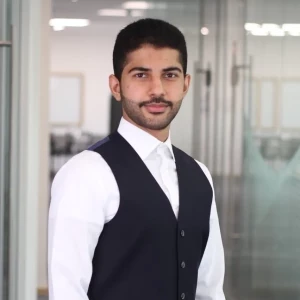Hi,
I know that it is very important to have a clear hypothesis when doing a candidate-led case, however, I wonder whether it is absolutely necessary to state hypothesis when laying out structure for interviewer-led cases?
Thanks.
Hi,
I know that it is very important to have a clear hypothesis when doing a candidate-led case, however, I wonder whether it is absolutely necessary to state hypothesis when laying out structure for interviewer-led cases?
Thanks.


Hi,
The major mistake of the candidates is that they start using the hypothesis and neglect having a proper structure. Moreover, if you perfectly solve the case without ever stating a hypothesis - you'll pass the interview.
There are two ways to use the hypothesis:
First - presenting a structure using the hypothesis. For example, if you are having a PE (private equity) case, you should do the following:
1) Make classic structure (market, company, competitors, feasibility of exit)
2) Make subpoints (e.g. in market: size, growth rates, profitability, segmentation, etc)
3) Present your 1st level Hypothesis:
4) Present the main 2nd level Hypothesis:
Another way to use hypothesis is using the hypothesis to prioritize your analysis:
1) Make a structure: "Problem in sales may be related to Sales Motivation, Sales Strategy, Sales Coverage, and Sales Process:
2) Prioritize a part of the structure based on your knowledge / common sense / available data: "Taking into account that motivation is the core problem of the sales organization, I would like to prioritize this part of the analysis"
Good luck!

Hi,
I believe it is a very common misconception among candidates that they need to explicitly state a hypothesis before laying out their structure. But a much better advice is the following:
Delay the explicit statement of a hypothesis until you have something to ground your hypothesis on! Just stating a hypothesis for the sake of it serves no purpose, since it is nothing more than guessing!
For example, if you are structuring a profitability case, where profits have decreased and you are asked for a diagnostic. Unless the interviewer has given you a hint in the case prompt, it does not make any sense to hypothesisze on the concrete reason before laying out your analysis/diagnostic structure! Instead, you can say:
“I would like to first identify the numerical driver of the problem, which can sit either on the revenue or on the cost side (or both). Based on this initial assessment, I would build a hypothesis on the underlying reasons for the detrimental development, then verify the hypothesis, and subsequently derive measures to address these reasons in order to reverse the trend.”
Cheers, Sidi

When you probably find a possible solution for the question given by the interviewer, you lay out the hypothesis and find the drivers/assumption to show that your answer is true.











